Signalian
PDF THINK TANK: CONSULTANT

- Joined
- Aug 18, 2015
- Messages
- 10,608
- Reaction score
- 305
- Country
- Location
In the past seven decades, Pakistan Armed Forces, in general, and Pakistan Army, in particular, played a pivotal role in establishing, sustaining, deepening and upgrading Pakistan-China relationship. From collaboration in defense production to close cooperation in counterterrorism and intelligence-sharing, from securing Chinese projects under the CPEC umbrella to increasing military interoperability through training programs and joint exercises, Pakistan Armed Forces have been at the forefront of the relationship’s reinvigoration.
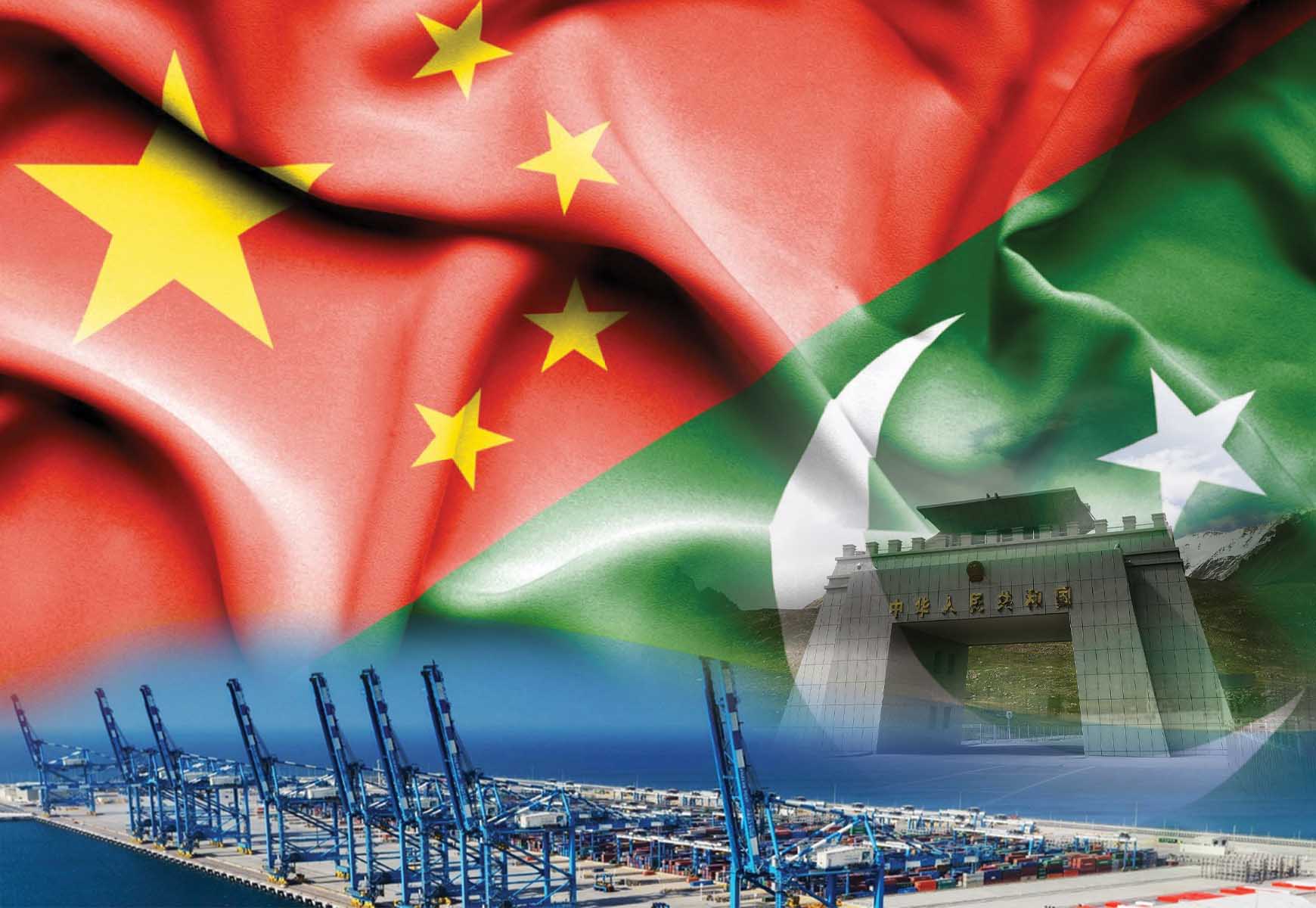
China and Pakistan's strategic partnership is etched in stone, withstanding the test of perilous times. In the past seven decades, despite acute changes in the domestic landscapes of both countries, China and Pakistan have maintained the positive trajectory of their bilateral relationship. Although multidimensional and multifaceted, this iron brotherhood is predicated on a strong defense relationship that revolves around the principles of mutual trust, peaceful coexistence and respect for each other’s security sensitivities. Both countries have signed several agreements in diverse areas to enhance bilateral defense ties. Whether joint military exercises, training programs, technology transfer or intelligence sharing, Pakistan-China defense collaboration knows no bounds. Moreover, Pakistan has always been confident of finding a trusted friend in China, who always came to Pakistan's help in times of extreme need. Pakistan has also reciprocated this sentiment by extending unconditional support to China at all multilateral forums.
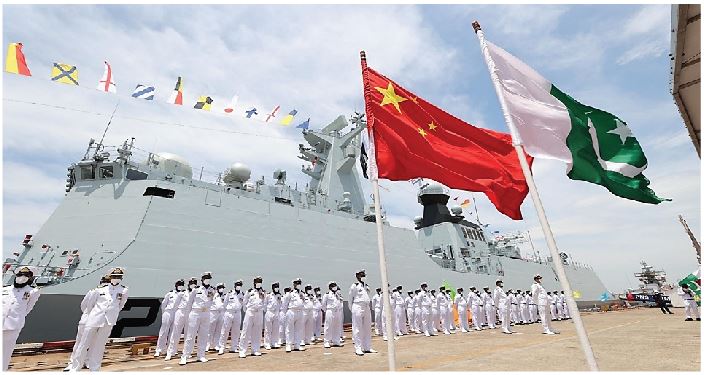
The China-Pakistan relationship, particularly the defense relationship, stands on a solid footing. The present leadership of Pakistan Armed Forces understands the need to reinvigorate and re-energize the ties. Besides, the changing calculus of international alliances in a multipolar world has pushed countries to solidify their existing relationships. In this regard, it is understandable that the leadership of the Pakistan Armed Forces intends to reaffirm their resolve to take the Pakistan-China relationship to new heights.
Given the aforementioned context, the leadership of the Pakistan Armed Forces showcased a strong determination to elevate this relationship to a higher level. As a result, Chief of the Army Staff (COAS), General Syed Asim Munir, undertook a four-day official visit to China. During the visit, he met senior Chinese military and civilian leadership and discussed matters pertaining to mutual security interests and enhanced military cooperation. Moreover, his meeting with the Commander of People’s Liberation Army (PLA) highlighted the need for maintaining peace and stability in the region and beyond. Elaborating on the future trajectory of the China-Pakistan defense relationship, Vice Chairman of China's Central Military Commission (CMC), General Zhang Youxia, told COAS, "Chinese military is willing to work with the Pakistani military to deepen further and expand practical cooperation, continuously push military-to-military relations to a higher level, and jointly safeguard the common interests of the two countries as well as regional peace and stability."
Chief of the Army Staff, General Syed Asim Munir, undertook a four-day official visit to China. During the visit, he met senior Chinese military and civilian leadership and discussed matters pertaining to mutual security interests and enhanced military cooperation.
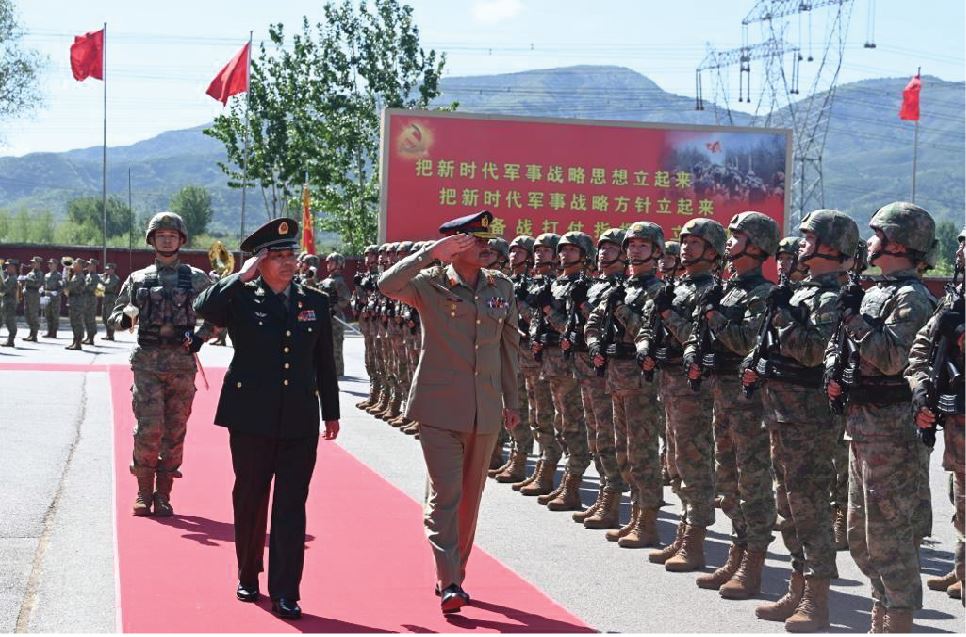
Following COAS' visit to China, Chief of the Naval Staff (CNS), Admiral Amjad Khan Niazi met senior Chinese military and civilian leadership in Beijing. This visit brought to the fore China’s desire to project China-Pakistan relations as a model for “building a community of shared future of mankind.” From Pakistan’s perspective, this crucial visit demonstrated Pakistan Navy’s (PN) willingness to establish “closer and deeper cooperation mechanisms” with PLA Navy. While discussing matters of mutual interests with CNS, Admiral Amjad Khan Niazi, Chinese State Councillor and Defense Minister, General Li Shangfu suggested, “The two militaries should explore new areas of exchange, spark new highlights of cooperation, continuously improve their ability to tackle various security risks and challenges, and work together to safeguard national and regional security interests.”
The relationship between China’s PLA Navy and Pakistan Navy holds a special place in the current regional geostrategic, geopolitical and geoeconomics matrix. The unveiling of the China-Pakistan Economic Corridor (CPEC) as a ‘game-changer’ project–with the potential to rapidly change the strategic, political and economic landscape of the extended Arabian Sea region–has increased the significance of close cooperation between PLA Navy and PN.
Building on the visits of COAS and CNS, Chairman Joint Chiefs of Staff Committee (CJCSC), General Sahir Shamshad Mirza, undertook an official visit to China to partake in comprehensive defense and security talks between the two brotherly countries. The visit was aimed at in-depth engagement with the Chinese military and civilian leadership to lay the foundation of a new chapter in the historical relationship. In his one-on-one meeting with CJCSC, Chinese State Councillor and Foreign Minister Qin Gang said that Pakistan Army was a staunch defender of China-Pakistan friendship. They hoped the Pakistan’s military would continue to play its role “as the anchor of stability by contributing to the building of China-Pakistan community of shared future.”
Following COAS' visit to China, Chief of the Naval Staff, Admiral Amjad Khan Niazi met senior Chinese military and civilian leadership in Beijing. This visit brought to the fore China’s desire to project China-Pakistan relations as a model for “building a community of shared future of mankind.”
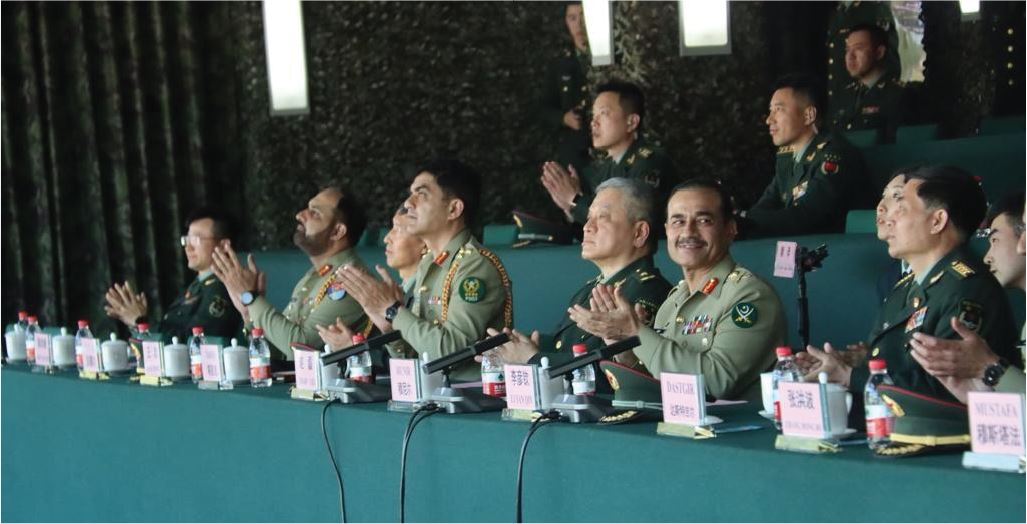
In the past seven decades, Pakistan Armed Forces, in general, and Pakistan Army, in particular, played a pivotal role in establishing, sustaining, deepening and upgrading China-Pakistan relationship. From collaboration in defense production to close cooperation in counterterrorism/intelligence-sharing, from securing Chinese projects under the CPEC umbrella to increasing military interoperability through training programs and joint exercises, Pakistan Armed Forces have been at the forefront of the relationship’s reinvigoration.
Despite Pakistan's political, economic or social upheavals, the country's relationship with its northern neighbor has stood firm because of Pakistan Armed Forces. Among the myriad of variables in Pakistan, Pakistan Armed Forces have always been the only constant that has jealously safeguarded the relationship. China-Pakistan relations are premised on working together for a shared, brighter future. In this regard, both countries’ militaries are actively working in synchronization on several major defense production ventures. These include, but are not limited to, JF-17 Thunder fighter aircraft, K-8 Karakoram advanced training aircraft, Al-Khalid tanks and AWACS systems.
Moreover, the two countries’ close cooperation in strategic matters is second to none. The fact that both countries regularly engage in military exercises to increase their interoperability is evidence enough of their mutual desire to take the relationship forward in the long term. Both the countries’ militaries clearly understand that their fates are intertwined and that they stand to benefit from this relationship.
Every civilian and military leader in Pakistan has tried to maintain a healthy and proactive relationship with China; however, the current Armed Forces’ leadership is decidedly in favor of re-energizing the existing bilateral relationship–taking it to new heights and ensuring its prolongation and solidification. Pakistan Armed Forces, in general, and Pakistan Army, in particular, desire a relationship with China that is mutually beneficial and predicated on respect for each other. Although it is Pakistan’s stated position to avoid being dragged into bloc politics, the country’s deep-rooted relationship with China is something that Pakistan will always be proud of and would never compromise on under any circumstances.
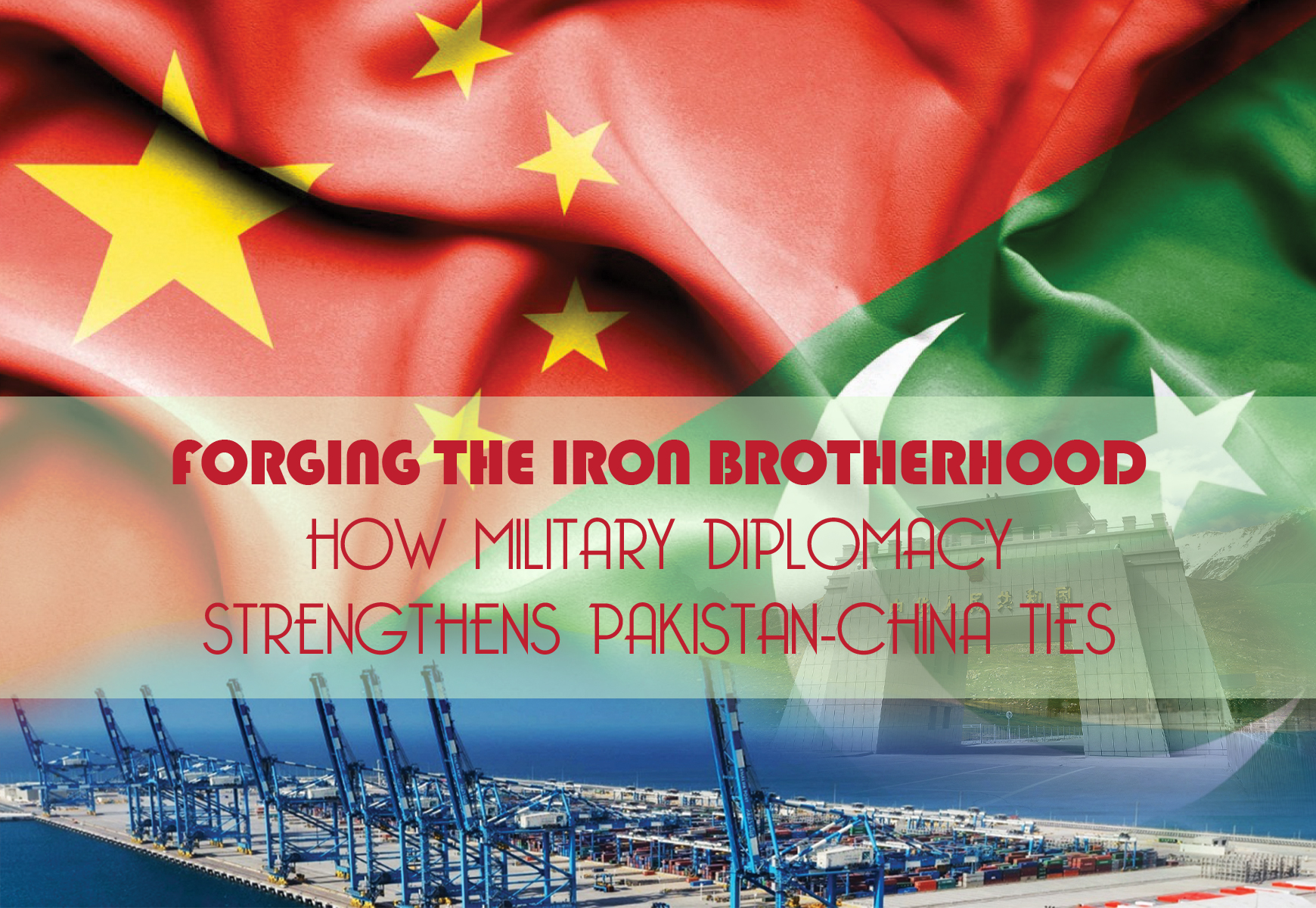
 www.hilal.gov.pk
www.hilal.gov.pk

China and Pakistan's strategic partnership is etched in stone, withstanding the test of perilous times. In the past seven decades, despite acute changes in the domestic landscapes of both countries, China and Pakistan have maintained the positive trajectory of their bilateral relationship. Although multidimensional and multifaceted, this iron brotherhood is predicated on a strong defense relationship that revolves around the principles of mutual trust, peaceful coexistence and respect for each other’s security sensitivities. Both countries have signed several agreements in diverse areas to enhance bilateral defense ties. Whether joint military exercises, training programs, technology transfer or intelligence sharing, Pakistan-China defense collaboration knows no bounds. Moreover, Pakistan has always been confident of finding a trusted friend in China, who always came to Pakistan's help in times of extreme need. Pakistan has also reciprocated this sentiment by extending unconditional support to China at all multilateral forums.

The China-Pakistan relationship, particularly the defense relationship, stands on a solid footing. The present leadership of Pakistan Armed Forces understands the need to reinvigorate and re-energize the ties. Besides, the changing calculus of international alliances in a multipolar world has pushed countries to solidify their existing relationships. In this regard, it is understandable that the leadership of the Pakistan Armed Forces intends to reaffirm their resolve to take the Pakistan-China relationship to new heights.
Given the aforementioned context, the leadership of the Pakistan Armed Forces showcased a strong determination to elevate this relationship to a higher level. As a result, Chief of the Army Staff (COAS), General Syed Asim Munir, undertook a four-day official visit to China. During the visit, he met senior Chinese military and civilian leadership and discussed matters pertaining to mutual security interests and enhanced military cooperation. Moreover, his meeting with the Commander of People’s Liberation Army (PLA) highlighted the need for maintaining peace and stability in the region and beyond. Elaborating on the future trajectory of the China-Pakistan defense relationship, Vice Chairman of China's Central Military Commission (CMC), General Zhang Youxia, told COAS, "Chinese military is willing to work with the Pakistani military to deepen further and expand practical cooperation, continuously push military-to-military relations to a higher level, and jointly safeguard the common interests of the two countries as well as regional peace and stability."
Chief of the Army Staff, General Syed Asim Munir, undertook a four-day official visit to China. During the visit, he met senior Chinese military and civilian leadership and discussed matters pertaining to mutual security interests and enhanced military cooperation.

Following COAS' visit to China, Chief of the Naval Staff (CNS), Admiral Amjad Khan Niazi met senior Chinese military and civilian leadership in Beijing. This visit brought to the fore China’s desire to project China-Pakistan relations as a model for “building a community of shared future of mankind.” From Pakistan’s perspective, this crucial visit demonstrated Pakistan Navy’s (PN) willingness to establish “closer and deeper cooperation mechanisms” with PLA Navy. While discussing matters of mutual interests with CNS, Admiral Amjad Khan Niazi, Chinese State Councillor and Defense Minister, General Li Shangfu suggested, “The two militaries should explore new areas of exchange, spark new highlights of cooperation, continuously improve their ability to tackle various security risks and challenges, and work together to safeguard national and regional security interests.”
The relationship between China’s PLA Navy and Pakistan Navy holds a special place in the current regional geostrategic, geopolitical and geoeconomics matrix. The unveiling of the China-Pakistan Economic Corridor (CPEC) as a ‘game-changer’ project–with the potential to rapidly change the strategic, political and economic landscape of the extended Arabian Sea region–has increased the significance of close cooperation between PLA Navy and PN.
Building on the visits of COAS and CNS, Chairman Joint Chiefs of Staff Committee (CJCSC), General Sahir Shamshad Mirza, undertook an official visit to China to partake in comprehensive defense and security talks between the two brotherly countries. The visit was aimed at in-depth engagement with the Chinese military and civilian leadership to lay the foundation of a new chapter in the historical relationship. In his one-on-one meeting with CJCSC, Chinese State Councillor and Foreign Minister Qin Gang said that Pakistan Army was a staunch defender of China-Pakistan friendship. They hoped the Pakistan’s military would continue to play its role “as the anchor of stability by contributing to the building of China-Pakistan community of shared future.”
Following COAS' visit to China, Chief of the Naval Staff, Admiral Amjad Khan Niazi met senior Chinese military and civilian leadership in Beijing. This visit brought to the fore China’s desire to project China-Pakistan relations as a model for “building a community of shared future of mankind.”

In the past seven decades, Pakistan Armed Forces, in general, and Pakistan Army, in particular, played a pivotal role in establishing, sustaining, deepening and upgrading China-Pakistan relationship. From collaboration in defense production to close cooperation in counterterrorism/intelligence-sharing, from securing Chinese projects under the CPEC umbrella to increasing military interoperability through training programs and joint exercises, Pakistan Armed Forces have been at the forefront of the relationship’s reinvigoration.
Despite Pakistan's political, economic or social upheavals, the country's relationship with its northern neighbor has stood firm because of Pakistan Armed Forces. Among the myriad of variables in Pakistan, Pakistan Armed Forces have always been the only constant that has jealously safeguarded the relationship. China-Pakistan relations are premised on working together for a shared, brighter future. In this regard, both countries’ militaries are actively working in synchronization on several major defense production ventures. These include, but are not limited to, JF-17 Thunder fighter aircraft, K-8 Karakoram advanced training aircraft, Al-Khalid tanks and AWACS systems.
Moreover, the two countries’ close cooperation in strategic matters is second to none. The fact that both countries regularly engage in military exercises to increase their interoperability is evidence enough of their mutual desire to take the relationship forward in the long term. Both the countries’ militaries clearly understand that their fates are intertwined and that they stand to benefit from this relationship.
Every civilian and military leader in Pakistan has tried to maintain a healthy and proactive relationship with China; however, the current Armed Forces’ leadership is decidedly in favor of re-energizing the existing bilateral relationship–taking it to new heights and ensuring its prolongation and solidification. Pakistan Armed Forces, in general, and Pakistan Army, in particular, desire a relationship with China that is mutually beneficial and predicated on respect for each other. Although it is Pakistan’s stated position to avoid being dragged into bloc politics, the country’s deep-rooted relationship with China is something that Pakistan will always be proud of and would never compromise on under any circumstances.

Forging the Iron Brotherhood: How Military Diplomacy Strengthens Pakistan-China Ties
In the past seven decades, Pakistan Armed Forces, in general, and Pakistan Army, in particular, played a pivotal role in establishing, sustaining, deepening and upgrading Pakistan-China relationship. From collaboration in defense production to close cooperation in counterterrorism and...



